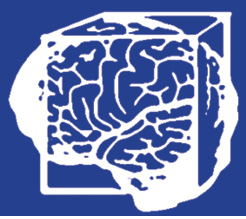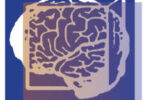By Marco C. Janssen, UTInnovation, the Netherlands
As most of you will know, several studies have shown that the majority of people have a tendency to fear change or resist it even if they claim that they like to try new things. Do you disagree? Let’s put it to the test. Tomorrow you will go and change your entire look and go against mainstream fashion and cultural expectations for a person in your position? Will you? Maybe you want to re-think your answer.

I think, we can all agreethat to some extent we are all hardwired to resist change. Main reason scientists discovered that the amygdala in our brain interprets change as a threat and releases the hormones for fear, fight, or flight. So, in essence our bodies are protecting us from change. Studies have also shown that there are three main reasons that make us consider overcoming the threats of change that keep us clinging to the past. The first one is dissatisfaction with the way things are now. The second one is a positive vision of the future and the third one is taking concrete steps to make that vision a reality. In the 1960s, David Gleicher created a formula that describes this as follows.
If Dissatisfaction * Vision * Concrete Steps > Resistance, then we are likely to make a change
I personally have experienced the process of making drastic changes in my life several times. Sometimes by me going through the process and taking the decision to change. For example, by moving to another country to live and work. And sometimes because others made the decision for me by them going through the process and deciding for me.
When I was still a graduate student at university and did my internship at the local utility, my mentor gave me some advice that really helped me move my career at several crucial moments. He said to me, as long as you are young at heart, flexible and eager, please consider changing focus every two years. Note that he said, “change focus” not “change jobs.”
What he was pointing at was something that happens to most of us… After the initial two years in a position many things become routine, and you start to do things on autopilot. You wake up every day at the same time, follow the same steps to get ready for work, do the same things at work over and over. You start to recognize situations and circumstances as they repeat themselves and you develop a routine way of dealing with them.
As a result, you stop challenging yourself and, in many cases, stop considering different approaches to do your job. In essence, you stop learning and apply the tricks you learned before. When that happens, I believe it is time to consider a change of focus.
From experience I can say that if you are willing to look in the mirror roughly every two years and ask yourself the following questions, you may be surprised about the positive effect this can have on your life. These questions include: Has my job still not become a routine? Am I still excited to go to work? Am I still gathering new experiences? Am I still learning in my current job? Am I being challenged sufficiently and positively at work?
If the answer to most of these questions is no, then I think it is time to consider changing focus.
In essence you are asking yourself if you are really satisfied with your current position and your daily activities. If you are, and if you enjoy living routine days then keep doing what you are doing, but if you are the kind of person that likes to continue growing, learning, exploring, and challenging yourself and others then you should move to develop a vision of what it is you would like to change. For example, would you like to work for the same company but in a different role (remember we are just changing focus)? What have you uncovered in your current and previous jobs that you would like to explore further? What are your strengths and weaknesses and what do you think could be the right way to improve on both? Where do you see yourself in 5 to 10 years from now and what do you think you need to do to get there?
Once you have developed your vision, you can then move on and take the first steps to achieve that vision and you will be on your way to enhancing your experiences, capabilities, and opportunities.
For me, I have always had this notion that I wanted to leave something valuable behind. This is why I have always enjoyed traveling as it gave me the opportunity to listen to people around the world talking about their ideas, their experiences, their pitfalls, their success stories, and their views of the trends that move the world. As a result, I developed my own views of what I wanted to contribute as an engineer to this world and it has brought me to train colleague engineers, help people to develop automation solutions for themselves and their companies. I even contributed to a world standard, helped to introduce electric vehicles in an oil-based economy, co-authored two books and recently wrote a book of my own. All things that I never thought I would be able to do when I was a young graduate, but that I achieved by changing focus several times throughout my career.
After implementing the great piece of advice from my mentor I can honestly say that I feel a tremendous amount of satisfaction and a sense of achievement. I therefore hope that all of you, after reading this, will shed your resistance against change and stand in front of a mirror one day to ask yourself the questions that will help you re-focus what you are doing and create your vision of what you want your next steps to be, and then take the steps towards a new version of you.
Biography:

Marco C. Janssen is the CEO of UTInnovation LLC and the former Director of the Smart Grid PMO at the Dubai Electricity and Water Authority. He received his BSc degree in Electrical Engineering from the Polytechnic in Arnhem, Netherlands and has worked for over 27 years in the field of Smart Grid, Protection, Control, Monitoring, Advanced Metering Infrastructures, Distribution and Substation Automation. He was a member of IEC TC57 WG 10, 17, 18, 19, the IEEE PES PSRC and CIGRE B5 and D2 WGs. He was the convenor of D2.35 and editor of the Quality Assurance Program for the Testing Subcommittee of the UCA International Users Group. He holds one patent, has authored more than 58 papers, is co-author of four Cigre Technical Brochures and two books on Smart Grids and Electrical Power Substations Engineering and is the author of the “I Think” column in the PAC World magazine.








